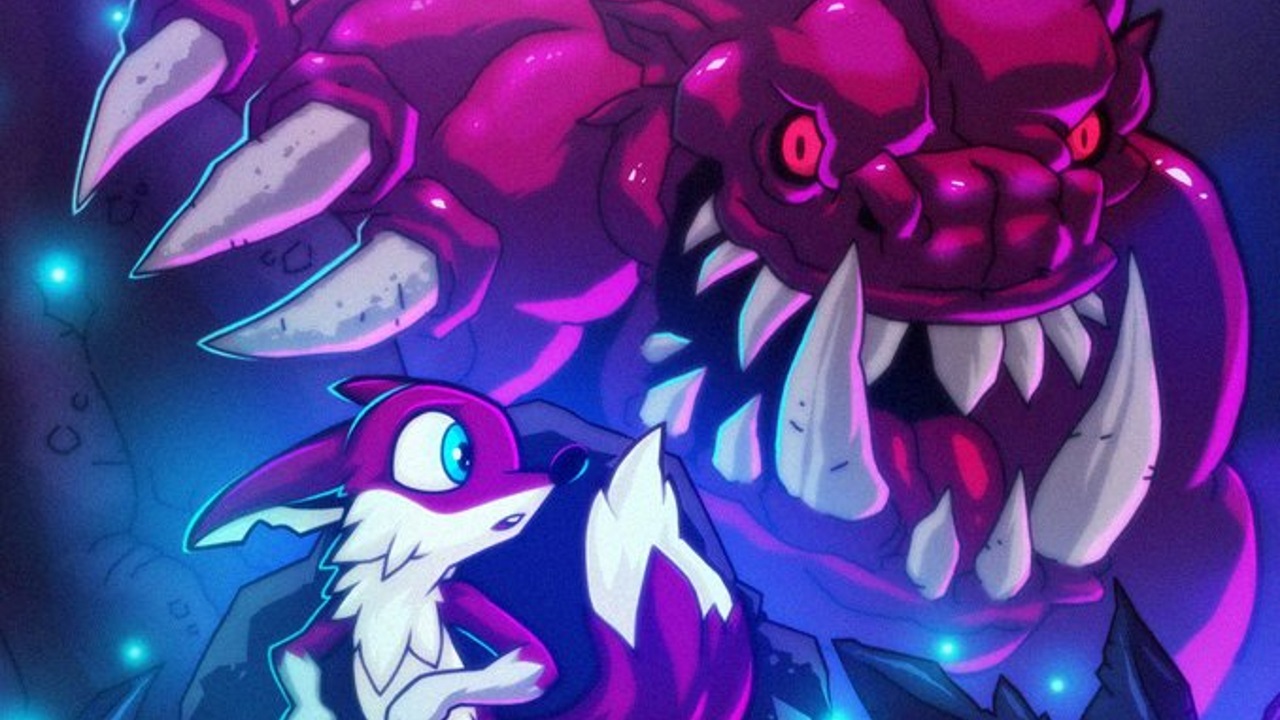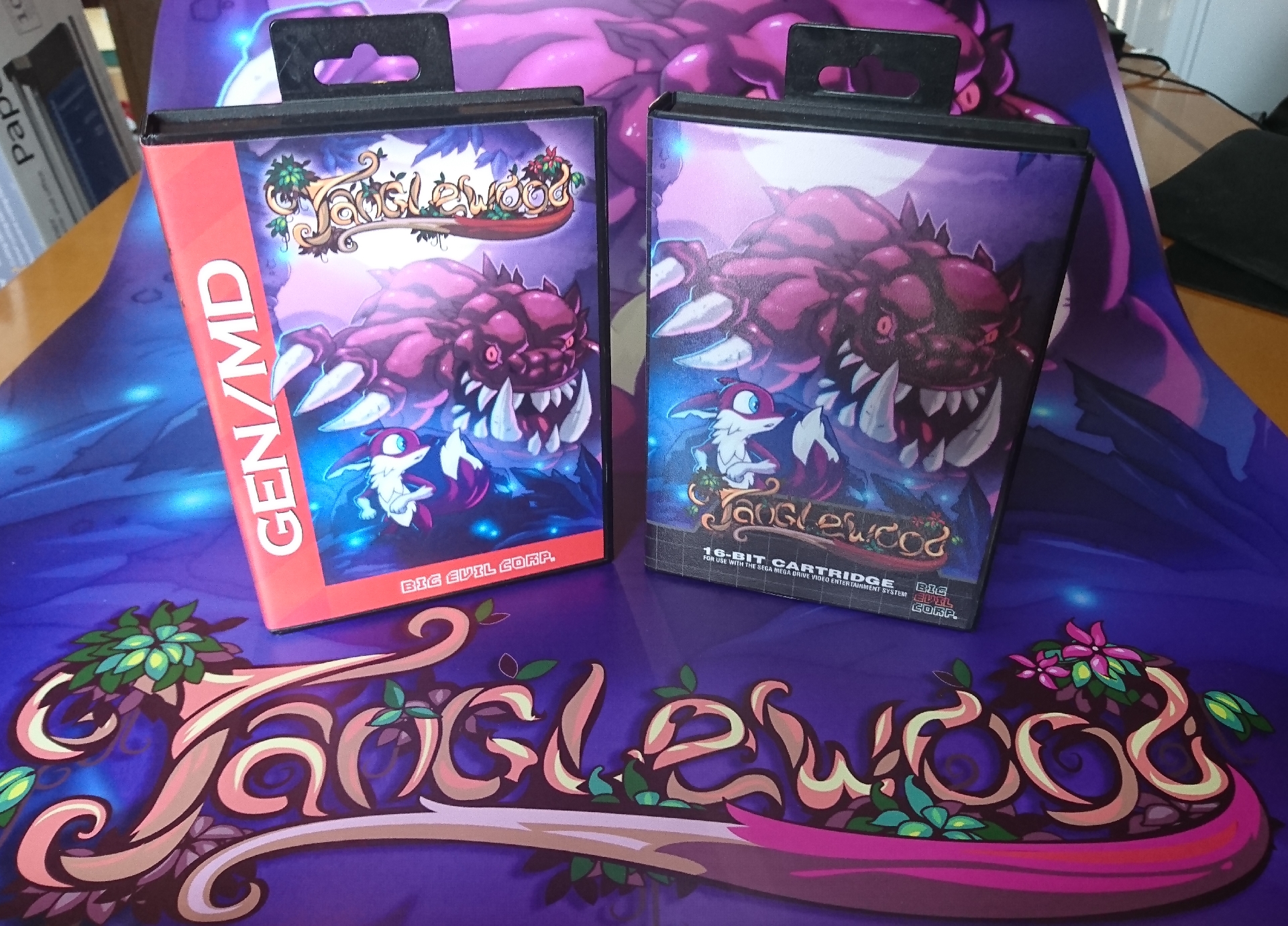Why the Tanglewood developers are making a game for Sega Genesis in 2018
"We'll keep making batches as long as people keep buying them"

Deciding which platforms to release a new game on is a tough choice for developers, fraught with business considerations and technical possibilities. Not many of them choose to go with the Sega Genesis in 2018 - but the people behind the new 16-bit sidescroller Tanglewood did.
As part of the Kickstarter campaign, the UK indie studio Big Evil Corp created physical Sega Genesis (AKA Sega Mega Drive) cartridges for the game, and hope to keep making more. We spoke to Big Evil Corp’s Matt Phillips to find out why.
What sparked the idea for the Genesis release, and what convinced you to make it a reality?
The idea had been brewing since my childhood. I'd wanted to get into games development since around the age of 9, and the idea of making a game for my favorite console stuck around my entire career. I guess I just never grew up! During my time at Traveller's Tales, I was fortunate enough to meet some veteran Mega Drive programmers who had worked on titles like Sonic 3D, Mickey Mania, and Puggsy back in the '90s, and conversations about their experiences prompted me to finally give this a shot and learn how to code for the machine.
How many cartridges are being made?
The first batch is 1,000-strong, but we'll keep making batches as long as people keep buying them. One problem we have is that original 5v ROM chips are slowly drying up - we've been sourcing original '90s stock for this - and we may have to switch to more modern storage when we reach a certain point. But we'll do our very best to continue making carts if the demand is there, even if the later designs aren't quite as true to their '90s roots as we'd hoped for.

How do you even get them made in 2018? Are there factories remaining?
Everything had to be custom designed and machined. We had a plastic injection mold created to press the cartridge shells, and the PCB design was outsourced to a Canadian electronics company who managed to track down a large batch of ROM chips. The cases were sourced from a company that recreates them to replace broken games in collections, and they were happy to make a deal for a bulk order. All printwork was done at a local printers, and there are many small details like security screws, case seals, packaging materials and barcode stickers that were manufactured ad-hoc.
How many people do you estimate still own a Sega Genesis?
Well, our Kickstarter can answer that one - lots! Interestingly, we did our research and have figures to share. Of the 1,000 people we questioned, over 50% of those who originally owned a Genesis in their childhood either still own it (up in a loft somewhere) or they repurchased one as part of the recent retro gaming craze. Nostalgia's a funny thing. It was also cool discovering how many people still owned some of the rarer peripherals such as Mega-CD and 32X - I hope they know how much they're worth now!
Can you tell us anything about the Kickstarter backer who pledged £1,000 to design a boss character, and how that worked out?
They wanted a monster that was disgusting to look at, with ripped flesh falling apart at the seams, and bugs crawling under the skin. One reference we were given was The Oogie Boogie Man from The Nightmare Before Christmas - a creature that doesn't necessarily look harmful at first sight, but whose presence (and smell) is really unsettling and brings the tone and mood of the room down like a black cloud. The end result was the Borgus monster, a disgusting swamp-dwelling beast with torn skin, that spits balls of rotting, maggot-infested flesh at you.
Sign up to the GamesRadar+ Newsletter
Weekly digests, tales from the communities you love, and more
Get the best games and entertainment news, reviews, tips and offers delivered to your inbox every week by signing up to the GamesRadar+ newsletter today.

Rachel Weber is the former US Managing Editor of GamesRadar+ and lives in Brooklyn, New York. She joined GamesRadar+ in 2017, revitalizing the news coverage and building new processes and strategies for the US team.


